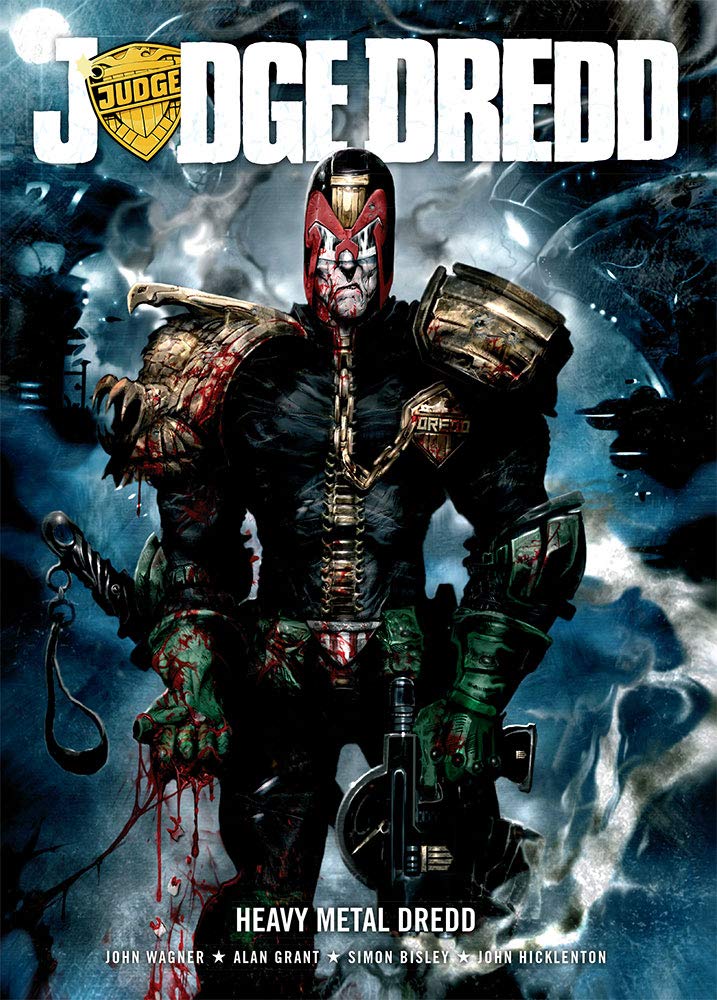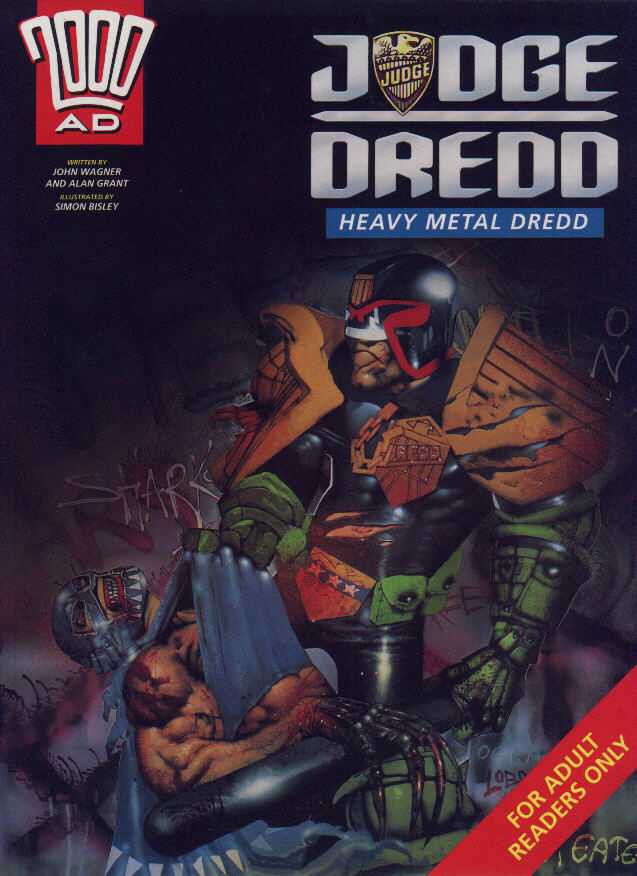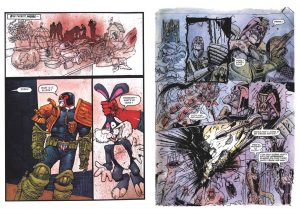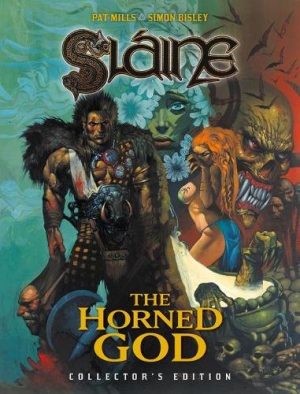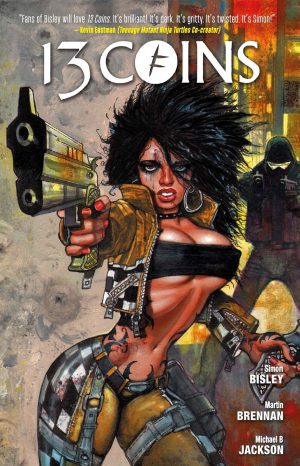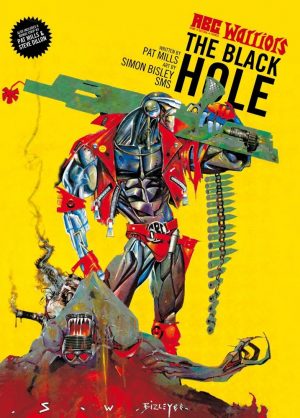Review by Frank Plowright
For a short while in the early 1990s Judge Dredd’s world expanded beyond 2000AD. Fans who’d started reading his adventures in 1977 remembered him fondly, but while some remained readers, many had moved beyond comics to other interests. It was felt the way to reach out to them was to have a Dredd strip in the newly launched Rock Power magazine, which accounts for so many of these stories having a musical theme. Heavy Metal Dredd’s entire content first appeared there, despite credits noting the Judge Dredd Megazine as their first appearance.
The tone was set by Alan Grant and John Wagner’s opening strip with a musical tour around Dredd and his world, giving Simon Bisley, never the most coherent of storytellers, the opportunity to astound with his visual creativity while not needing much plot. After that inspiration comes from songs a couple of times, among them Dead Man’s Curve and Pinball Wizard, in scripts where everyone bar Dredd comes to a nasty end, brutally depicted by Bisley, then primarily John Hicklenton before Bisley again. The best of these is the lunacy of a band’s progression from being the Gonads, because the four members are named Dick, Dick, Dick and Willy. Perhaps read once a week as originally published they hit a spot, but one following another in a collection the relentless nihilism and violence wears thin.
Wagner and Grant are hardly operating at full capacity, and that being the case it’s surprising how well John Smith’s stories match them. He opts for horror rather than music as the driving force, and Hicklenton’s disturbing visuals (sample right) bring out the best in his plots. The end slaughter is just about the same, but there’s imagination in getting there.
By the time the original creative team return for the final few stories, there’s been a shift in attitude. Wagner and Grant drop the music theme and instead opt for material that they’d never be allowed to run in 2000AD. Their tastes are suitably vulgar, a strip called ‘The Great Arsoli’ about the measure, and Bisley reins himself in slightly, even managing a passable Disneyesque world.
There’s a final treat of Brendan McCarthy art for ‘The Ballad of Toad McFarlane’, which has Dredd dosed with a psylocybin and among other experiences seeing his nightstick become a massive spliff. It’s slim, silly, fun and the art is great.
A slimmer, but larger format version of Heavy Metal Dredd was issued by Mandarin in 1993, but only collects the Bisley strips. Alternatively, a bulkier hardcover formed part of Hachette’s Judge Dredd partwork, and included further stories matching the tone.
